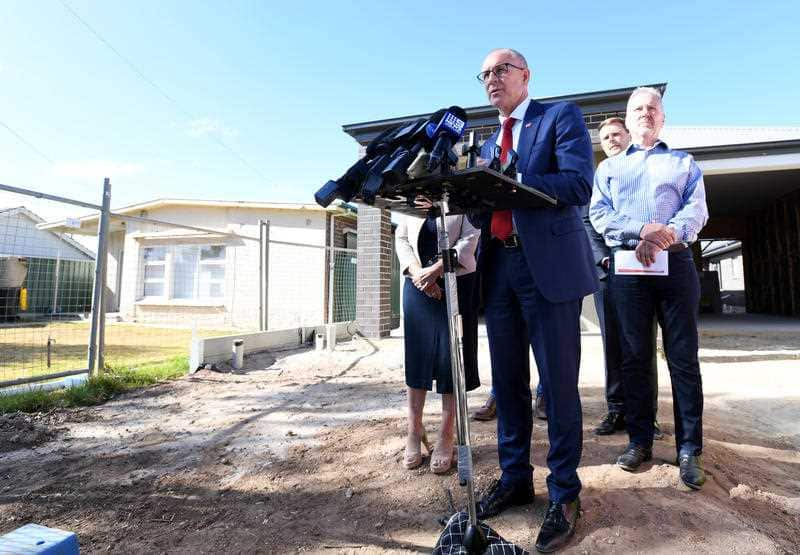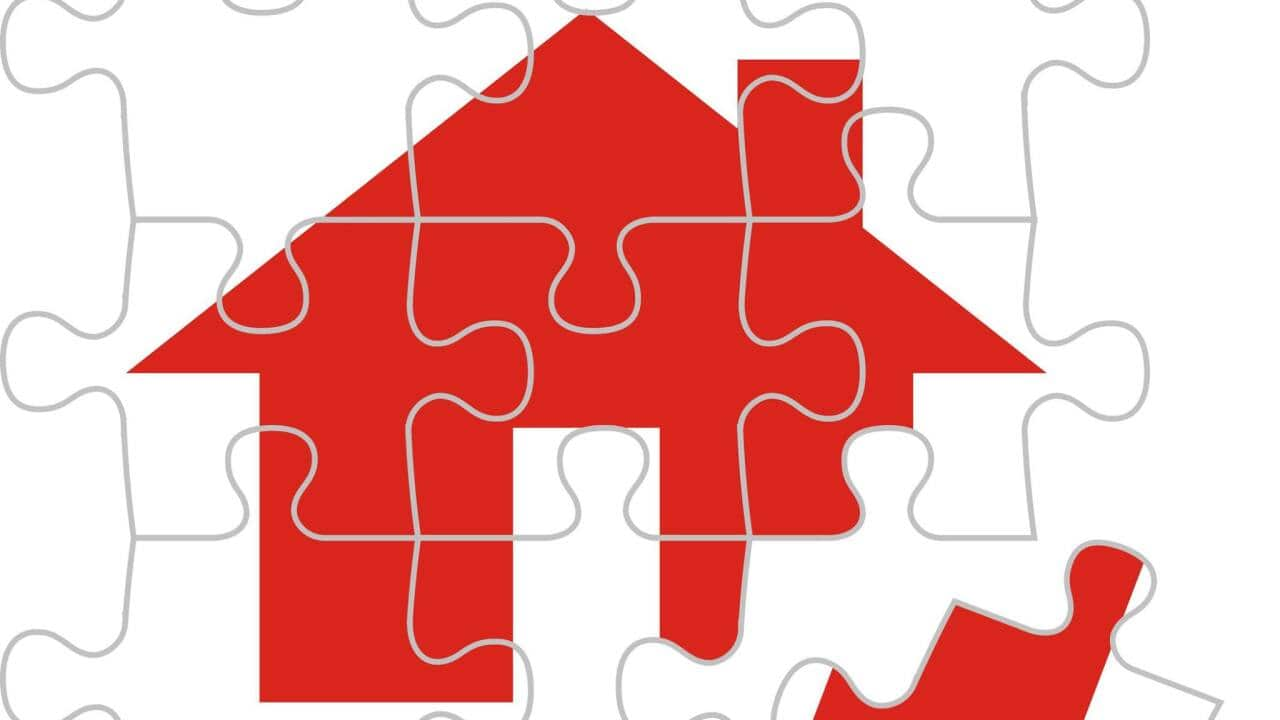Other than timely discussions around renewable energy, innovation, and state development, the upcoming (17 March) has been light on substance. With a few mavericks added to the dance card, such as newly-registered parties SA Best, Australian Conservatives and Advance SA, too much media focus has been on not policy.
Topics that didn’t register on the radar were public and community housing, support services, and a fairer justice system for Aboriginal people.
Countless studies show that without affordable, stable housing it is difficult to study, maintain a job, be healthy or achieve personal goals. Chronic health, family violence and loss of work can crack a household’s foundation. Supportive services and stable accommodation during unexpected life events are essential.
South Australia's transition housing problems
Access to education and training opportunities, health and medical services, and counselling are fundamental elements to in disparities between First Peoples and other Australians. However, access to services is much more difficult in rural and remote communities.
Aboriginal and Torres Strait Islanders represent 2 per cent of the South Australian population, and 46 per cent live in rural and remote regions. Small communities and homelands are spread across large, remote regions. For example, the . Services for rural and remote South Australians are often provided on a fly-in fly-out basis or are simply not available. This makes traveling to Adelaide essential for specialist health and medical services, education and training, rehabilitation, and Court services.
Services for rural and remote South Australians are often provided on a fly-in fly-out basis or are simply not available. This makes traveling to Adelaide essential for specialist health and medical services, education and training, rehabilitation, and Court services.

Demand for transition housing and services is not restricted to Adelaide, but regional centres with high Aboriginal populations too (Facebook / AnglicareSA) Source: Facebook / AnglicareSA
And with travel comes the need for short to medium housing – known as transition housing. is also needed when exiting correctional services, addiction rehabilitation, state foster care, and shelters.
Demand for transition housing and support services is not restricted to Adelaide. Regional centres with high Aboriginal populations, such as Port Lincoln, Ceduna, Port Augusta and Coober Pedy, can experience sudden increases in people visiting from remote communities. Partly due to family and cultural reasons, but also because better access to services and emergency accommodation is required in remote communities.
Shelter SA's Call To Action
In November 2017 , the peak for providers of social housing in SA, facilitated a forum.
The intent of the Transition forum was to provide an opportunity for service providers to discuss housing and related support services for Aboriginal people. The focus was on sharing effective programs and strategies, as opposed to airing issues.
Whilst the Transition forum was a good opportunity for services to share how they deliver services, there were not many Aboriginal and Torres Strait Islander people in the audience and only a few on the panels. The Aboriginal speakers that were there however, as well as all state government employees, shared their knowledge of building relationships, delivering effective services, and included Aboriginal and Torres Strait Islander recruitment. Aboriginal and Torres Strait Islander employment in South Australian public sector sits at 1.8 per cent, on track to meet the 2 per cent target by 2020. In contrast, many mainstream community housing and support services struggle to recruit Aboriginal and Torres Strait Islander employees and furthermore, lack good-practice frameworks for working with First Peoples.
Aboriginal and Torres Strait Islander employment in South Australian public sector sits at 1.8 per cent, on track to meet the 2 per cent target by 2020. In contrast, many mainstream community housing and support services struggle to recruit Aboriginal and Torres Strait Islander employees and furthermore, lack good-practice frameworks for working with First Peoples.

An open letter to the South Australian Political Parties at the hand of Dr Alice Clark, Exec. Director of Shelter SA Source: Shelter SA
An outcome arising from forum discussions was to get housing on the radar in the upcoming state election. So asking them how they would address five key areas if elected to the 2018 state government. The forum attendees’ wish list consisted of: government-led Aboriginal workforce development, culturally competent policy and service delivery, ensuring Aboriginal people stop falling through the gaps, increased supply of social and emergency housing, and a culturally appropriate justice system.
The government's responses
that received these letters were diverse. Ranging from those that appeared to have no specific policies relating to Aboriginal housing, justice system and services (SA Best, Advance SA and Australian Conservatives) to one that provided a long response that was short on actual policies (Liberal) and others that provided responses of substance (Dignity Party and Greens). And Labor, who intend to just get on with the job if re-elected.
Hon Robert Brokenshire MLC responded for , who were keen to see more funding for regional Community Legal Centres.
Current state leader Steven Marshall factually noted that when Jay Weatherill was Housing Minister (2004-08) he “…transferred responsibility for aboriginal [sic] housing from a separate authority...” to Housing SA. Liberal won’t be changing this, but they are considering reviving Homestart Nunga Loans. A Labor initiative, this program provided 427 loans between 2004 to 2011. Steven Marshall expressed pride in the Playford Liberal government’s (1938 – 65) public housing initiative for workers and their families. Later becoming Housing SA, public housing prioritises pensioners, people with disabilities, single parents, and other low-income/high-needs households. In Liberal’s response, it would appear they intend to transfer more public housing stock to the non-government organisations.
Steven Marshall expressed pride in the Playford Liberal government’s (1938 – 65) public housing initiative for workers and their families. Later becoming Housing SA, public housing prioritises pensioners, people with disabilities, single parents, and other low-income/high-needs households. In Liberal’s response, it would appear they intend to transfer more public housing stock to the non-government organisations.

South Australian Liberal leader Steven Marshall addresses the media during a press conference in Adelaide Source: AAP
Perhaps Steven Marshall has a nostalgic yearning for past eras, as teaching Aboriginal people skills in “…financial management, healthy living and general home upkeep” also forms part of his wish list.
, who has been connecting to his own Aboriginal heritage, currently has responsibility for . If Liberal are elected “…the Premier will take the aboriginal [sic] affairs portfolio. It will no longer be an outpost of the administration”, Marshall wrote.
Steven Marshall will “…ensure that all departments and agencies provide an adequate level of cultural awareness training to employees.” However, one might suggest that with the Liberal response using (such as not capitalising ‘Aboriginal’) and nostalgic approaches to social responsibilities, Marshall might want to put his name down for that training before taking up this specialist portfolio.
stakeholder response team’s letter has elements of cultural respect and acknowledges ongoing impacts of colonisation and racism. Stakeholder engagement will mostly rely on existing relationships, such as the Commissioner for Aboriginal Engagement and SA Aboriginal Advisory Council. And it is of note that Labor were the during this election. Labor did refer to the , as well an expected discontinuation of federal funding. Labor stated they intend to advocate alongside Aboriginal leaders and communities for ongoing funding.
Labor did refer to the , as well an expected discontinuation of federal funding. Labor stated they intend to advocate alongside Aboriginal leaders and communities for ongoing funding.

South Australian Premier Jay Weatherill speaks to the media during a visit to a public housing site in Adelaide (AAP) Source: AAP
Stage two of the Aboriginal Community Housing Organisations Transition Strategy is being implemented. This involves capacity building and employment opportunities for eligible rural and remote Aboriginal communities in property and tenancy management.
Targeted-allocation of stock is also part of Labor’s transition housing strategy, such as employment-related accommodation for Aboriginal people from remote areas who are . And Labor has just announced two , which will increase public housing and create jobs, if they are re-elected.
Trial programs have commenced to address over-representation of Aboriginal and Torres Strait Islander people in the criminal justice system, based on a . And to reduce language barriers of accessing public services and Courts, Labor has funded a state-wide SA Aboriginal Interpreter Service.
Kelly Vincent, Leader of highlighted the need for a SA Aboriginal community-controlled housing organisation and increasing cultural competency of housing and support agencies. The Dignity Party responded with a belief that provision of affordable housing must meet the needs of Aboriginal and Torres Strait Islander households. They also suggested they wish to see increased consumer awareness and rights in the private rental market.
Tailored juvenile diversion programs and community-based rehabilitation also featured in their response, with reference to the recommendations of the 1991 .
presented a vision grounded in research and rights. Greens call for a fairer justice system, as articulated in the Aboriginal and Torres Strait Islander community-led campaign. Tammy Franks stated that “We want to change, and where necessary remove, laws and policies so that they no longer disproportionately negatively impact on Aboriginal and Torres Strait Islander peoples.”
Tammy Franks identified the importance of all agencies implementing workforce development strategies that create “…genuine opportunities for Aboriginal and Torres Strait Islander employment and enterprise development...and an end to disempowering work for the dole measures.”
SA Greens agree that increased housing supply is needed but also ‘…supportive housing, which emphasises independent housing solutions in preference to temporary and emergency ones.’
Both the Greens and The Dignity Party noted that the solution is not just increased housing stock and funding for services. The way forward is working with Aboriginal organisations and communities.
Nothing about us, without us
Nothing about us, without us is the standard that must be achieved. SA is the only state that does not have Aboriginal-controlled housing. Despite the non-Indigenous housing organisations’ wish list, shifting more public housing stock to them to manage is not the answer. Not when many of them lack capacity to work with Aboriginal families and communities. It is time SA had an Aboriginal housing authority again and/or an Aboriginal community-controlled housing organisation.
And nationally, there should be more scrutiny of non-Indigenous entities applying for funds allocated for Aboriginal and Torres Strait Islander service provision. If an organisation does not have the cultural expertise to deliver these services, they need to step aside and cease being part of the problem.
As far as deciding who to vote for in the looming state election: if affordable housing, supportive services and a fairer justice system is a determining factor for you, read the . It’s clear which parties will work effectively with Aboriginal people to implement change, which ones don’t quite walk the talk, and who is still playing catch up.
is a former co-founder of a housing co-operative in SA and has a graduate certificate in Social Science (Housing Management & Policy). Of Aboriginal descent, she has worked in public housing, neighbourhood development, and Aboriginal-community controlled health. Follow Karen









